throttling
Latest
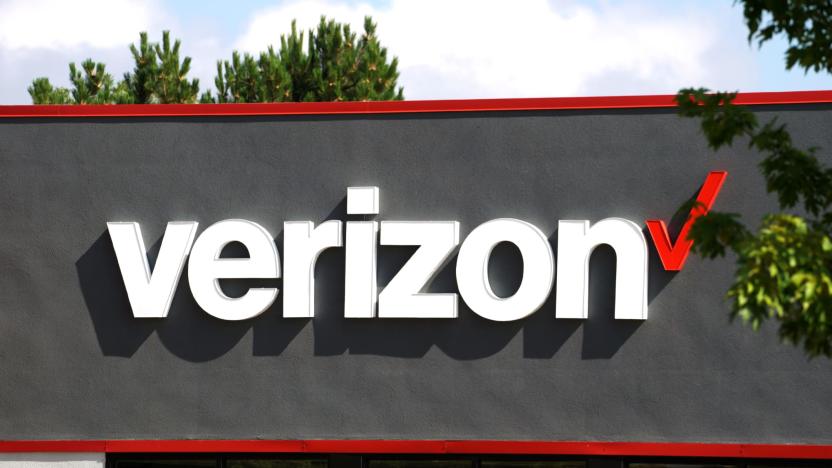
Verizon's always-on throttling is an affront to customers and net neutrality
Well, it was nice while it lasted. Today Verizon (the biggest carrier in the US) announced it was doing away with its simple and fair unlimited wireless-data plan and complicating things by instead offering three plans. Two of those cost more, and all three come with compromise. Customers who pick the cheapest plan can have their data speeds throttled at any time. Video won't stream above 480p, and tethering data is limited to the ludicrously slow speed of 600Kbps. Meanwhile, opting for the more expensive plan limits you to 720p video on phones and 1080p video on tablets, and you'll only be throttled if the network is congested and you've used more than 22GB of data in one billing cycle. (The third plan is aimed at business customers.) This is a big change from what Verizon announced in February, when it surprised just about everyone by bringing back unlimited data. As a reminder, the big US wireless carriers killed unlimited data back in 2011 and started moving customers to tiered plans, wherein you paid for what you used. But Verizon's new unlimited plan that came out earlier this year was blessedly simple: There was one plan, your data speeds were only throttled if you both went over 22GB and Verizon's network was congested at the time, and you got a full 10GB of LTE tethering data every month. It wasn't a cheap plan, but it probably was the most straightforward wireless option with the fewest compromises out there.
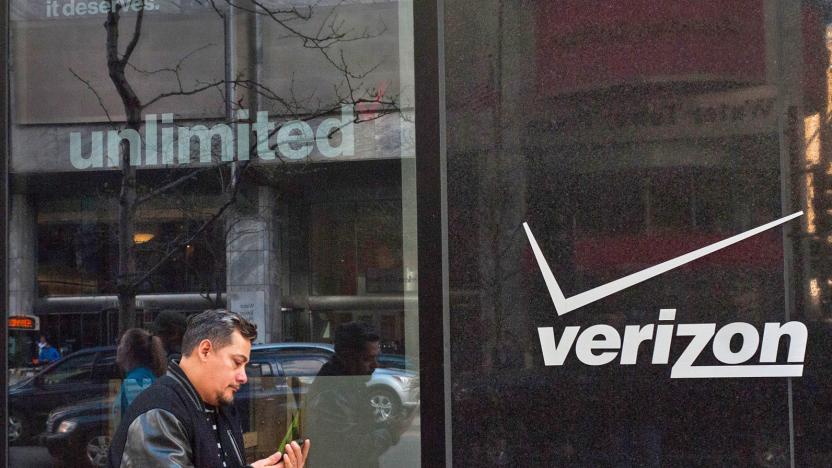
Verizon's new unlimited plans throttle video all the time
Verizon's revival of the unlimited data plan was supposed to be a good thing: it was bringing back worry-free service that let you use your smartphone as much as you like. Unfortunately, the carrier is making things complicated again. In the wake of tests that capped streaming video speeds, Verizon is splitting its unlimited access into multiple plans that face new restrictions. As of August 23rd, the standard Go Unlimited plan costs $5 less than before at $75 per month (if you use AutoPay), but you're limited to streaming video at 480p on phones and 720p on tablets -- shades of T-Mobile, anyone? The $80 prepaid plan and the Business plan cap you at 480p, too.

O2 eases roaming strain by secretly throttling data speeds
On June 15th, mobile roaming was more or less abolished across the EU. Great news for anyone wanting to drum up Instagram envy with their holiday snaps, but it's easy to forget the technical challenges -- all of a sudden, cell towers have to deal with domestic traffic and countless non-native phones vying for an uplink. It's something O2 seems ill-prepared for, having recently been caught throttling the life out of roaming connections in Dublin, Ireland.
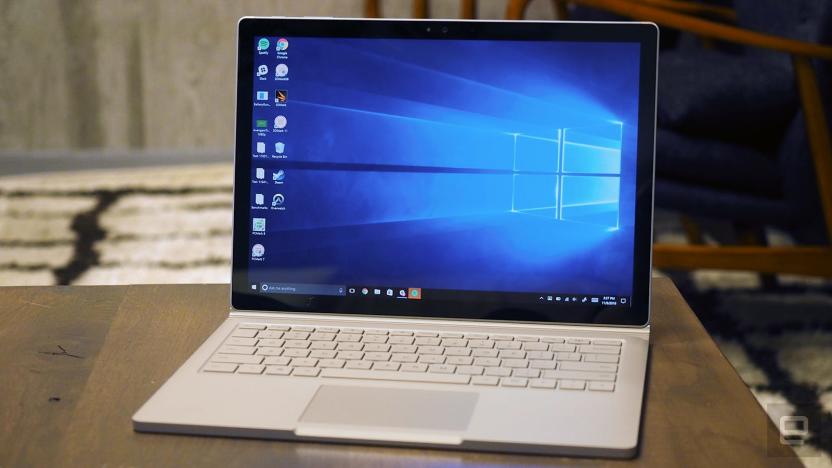
Windows 10 will throttle apps to improve battery life
If there's anything that will kill your laptop's battery quickly, it's running background apps. They'll often chew up a lot of processor power regardless of what they're doing. Microsoft wants to do something about that on Windows PCs. It just released an Insider preview build of Windows 10 whose Power Throttling feature should keep the amount of CPU work to a minimum. If you have a portable PC with at least a 6th-generation Intel Core processor inside (wider support is coming), Windows can switch the chip to a more energy-efficient state when background apps are active. Those background apps will still get their work done -- they just won't be as demanding as they would be if they were front and center.
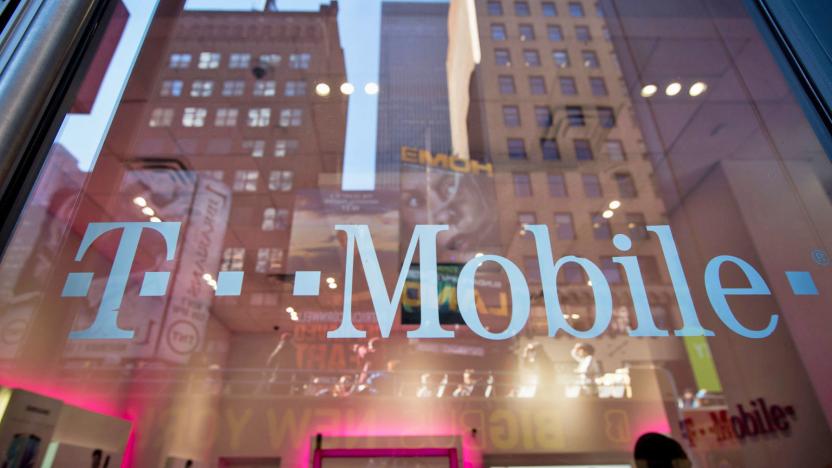
T-Mobile agrees to pay FCC $48m over misleading data plans
T-Mobile has championed itself as a provider of "unlimited" wireless data -- but its plans have historically also come with a wide variety of caveats, be they throttling video data or slowing you down when you hit a data cap. The FCC has decided that T-Mobile isn't playing straight with customers, and today the agency announced a settlement: The Wireless provider will pay $48 million to address "inadequate disclosures" of its unlimited data plans.
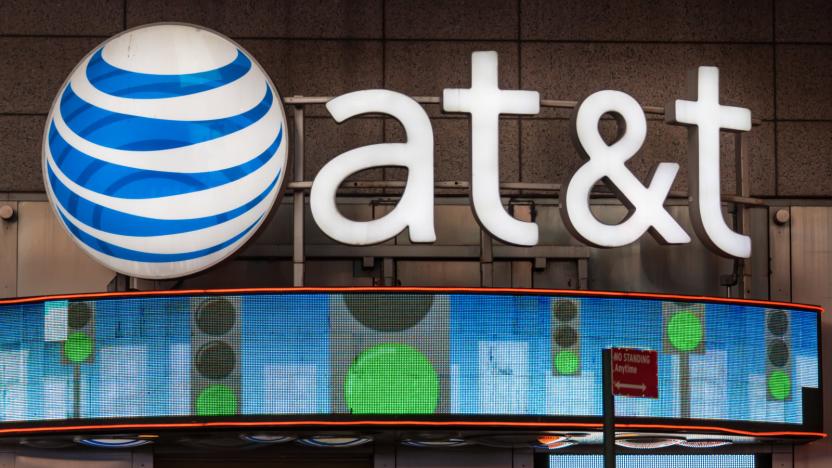
Court tosses federal lawsuit over AT&T's data throttling
The FCC may be having some success hauling AT&T out on the carpet for throttling unlimited data plans without clear warnings to customers, but the FTC isn't so lucky. A Ninth Circuit appeals court has tossed out the FTC's lawsuit against AT&T over allegedly failing to properly disclose slowdowns to customers. While a district court had ruled that the supposed violations didn't occur when AT&T's service was covered by common carrier exemptions from rules on deceptive and unfair practices, the Ninth Circuit sees things differently. It believes that AT&T's exemption is based on its inherent status as a common carrier, not its activities, and thus that exemptions let the provider say as little as it did about throttling.
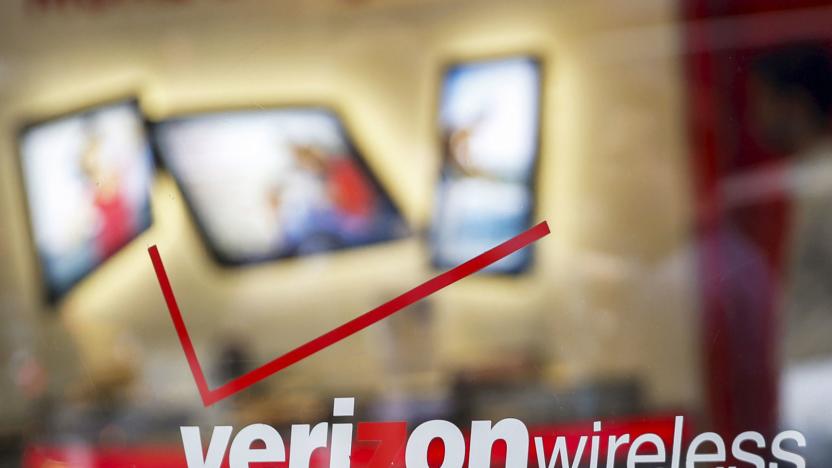
Verizon will disconnect its heaviest 'unlimited' data users
There's a limit to "unlimited," it turns out. Verizon Wireless customers who still have unlimited data plans and who regularly go over 100GB per month will be forced to switch to limited data plans or get kicked off the network on August 31st, Ars Technica reports. Any Verizon customers who rely on their phones to stream entire seasons of Game of Thrones, or are trying to download the entire Library of Congress to their devices, will soon be getting notifications from Verizon that they've been flagged as an "extraordinary" data user.

AT&T avoids class action lawsuit over unlimited data throttling
Bad news if you were hoping to take AT&T to task for throttling your unlimited mobile data: you probably won't get much help beyond government regulators. A Northern California District Court judge has ruled that the carrier won't face a class action lawsuit for allegedly misleading customers by promising unlimited data that could slow down if you used 3GB or more in a given month. The judge claims that affected subscribers all signed contracts that let AT&T send disputes like this to individual arbitration. They can't sue, in other words.

EFF: T-Mobile's video 'optimization' is just throttling
We wouldn't blame you for doubting T-Mobile's claim that Binge On 'optimizes' mobile video instead of throttling it -- that sounds like a classic euphemism. And it looks like your skepticism may be well-warranted, if you ask the Electronic Frontier Foundation. It recently conducted tests suggesting that the cap-free viewing option throttles every video download and stream to 1.5Mbps, no matter which service you're using or how good your connection might be. While T-Mobile says it's shrinking videos to 480p, the EFF shows that the carrier is simply reducing the bandwidth to make most videos play at 480p. If a service doesn't have a low-bandwidth option, you get stuttering and other hiccups.
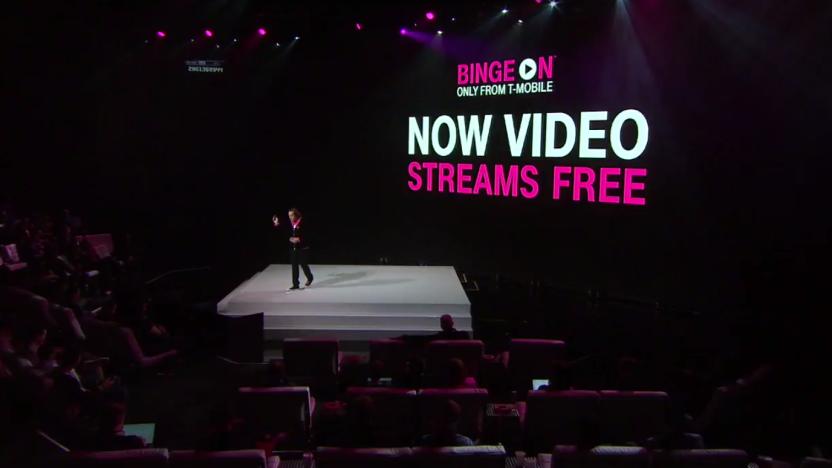
T-Mobile says it doesn't 'throttle' YouTube, it 'downgrades'
T-Mobile's Binge On service allows eligible customers to stream videos from select services -- Netflix, HBO Go, Hulu and others -- without eating into their data allowances. The catch? Binge On videos are streamed at 480p by default. YouTube isn't included in Binge On, but recently the company accused T-Mobile of "throttling" its service regardless. This isn't an accurate characterization, a T-Mobile spokesperson told DSLReports in the following statement:"Using the term 'throttle' is misleading. We aren't slowing down YouTube or any other site. In fact, because video is optimized for mobile devices, streaming from these sites should be just as fast, if not faster than before. A better phrase is 'mobile optimized' or a less flattering 'downgraded' is also accurate."

Sprint is throttling data hogs who use more than 23GB in a month
Sprint's unlimited data plan is about to get more expensive, and now the carrier is also saying that it'll start throttling the heaviest users of that unlimited data. Sprint CTO John Saw says as much in a blog post entitled "Protecting the 97 percent" -- a reference to the 97 percent of the carrier's customers that will go unaffected by this change. The company's new "quality of service" practice means that it'll start throttling users who go over 23GB of data in a billing cycle. At that point, their data usage will be prioritized below the rest of the carrier's customers, but only in "times and locations where the network is constrained."

T-Mobile will throttle users exploiting tethering workarounds
Under the leadership of its always-entertaining CEO John Legere, T-Mobile has undercut its competitors, rebranded as an "Uncarrier," and generally painted itself as a champion of the people. Not so today. Legere has penned an open letter highlighting users that are getting around the company's tethering limits. Apparently, this "small group" of customers use "as much as two terabytes of data per month," and this makes John Legere very sad.

AT&T faces $100 million fine for quietly throttling data speeds (update: AT&T responds)
Look, it's no secret that if you've got a old-school unlimited data plan from AT&T, your data speeds get throttled from time to time. Alright, it might be a bit of a secret -- that's why the FCC has just announced that it plans to slap the massive telecom with a $100 million fine for "severely" slowing down users' connection speeds without adequately notifying them of the pokier speeds they might face. In case you haven't been keeping count, that's the single largest proposed fine in FCC history. A senior FCC official stated that service would at times get so slow that "basic mobile applications would not function," and that people who ran afoul of AT&T's rules would get slower data speeds than others for an average of 12 days.

AT&T won't always throttle your unlimited LTE data
While AT&T has limited its throttling for unlimited 3G data to clogged-up networks, it hasn't been so kind to the LTE crowd. Go past 5GB of usage in a month and your high-speed connection would always slow down, no matter how empty the cell towers might be. The carrier is finally taking a softer stance, however. It recently updated its policy statements to say that it now throttles unlimited LTE data past the 5GB mark only if you're on a congested network. AT&T tells us that it had revealed plans to do this last year -- it just flicked the switch on the policy this week.

Judge says AT&T can't stop FTC lawsuit over data throttling
AT&T's attempt to turn the tables on the Federal Trade Commission's mobile data throttling lawsuit hasn't exactly worked out as planned. A federal judge has rejected the carrier's claims that it can't be sued because its status as a common carrier for voice, which exempts it from FTC oversight, also applies to data. This exception only applies to the services that they're meant to cover, according to the court -- while the Federal Communications Commission's upcoming net neutrality rules will factor in mobile data, they aren't in effect right now. The judge also says AT&T misrepresented the whole point of the rule. It's intended to prevent overlap between common carrier regulations, not (as the network suggested) regulations as a whole. In short, AT&T will have to deal with the consequences of limiting its unlimited data customers, whether that's a slap on the wrist or a serious change in policy. [Image credit: AP Photo/Mark Lennihan]

FTC says Straight Talk's promises of unlimited data were crooked
If you were seduced by offers of "unlimited" phone data on prepaid carriers like Straight Talk or Simple Mobile only to find your service unbearably slow after a certain point, the Federal Trade Commission has your back. The carriers' owner, TracFone, has agreed to pay the FTC $40 million to settle charges that it misled customers by advertising unlimited data that was really throttled into oblivion. In other words, Straight Talk was being... less than straight. Beyond the payout, TracFone has to avoid making sketchy claims in its ads and provide refunds to anyone who's been burned. The settlement won't affect a huge number of people, but it could serve as a warning sign to AT&T and other big carriers trying to avoid penalties for similarly shady throttling practices.

AT&T invokes Title II status to dismiss FTC data throttling suit
AT&T definitely doesn't want to be regulated as a Title II "common carrier" internet provider, but it's happy to use that status to dodge charges of throttling customer data. The carrier just filed a motion to dismiss a recent suit by the FTC over "deceptive" mobile data throttling. It claims its common carrier status for providing voice services exempts it from the FTC's jurisdiction over data as well -- and that it should instead fall under the FCC's writ. The suit resulted after AT&T said that certain unlimited data plan customers would see throttled speeds, despite the fact that they paid for that to not happen. AT&T said that its common carrier designation, rather than specific services it provides (like data), means that "the FTC cannot rewrite the statute to expand its own jurisdiction."
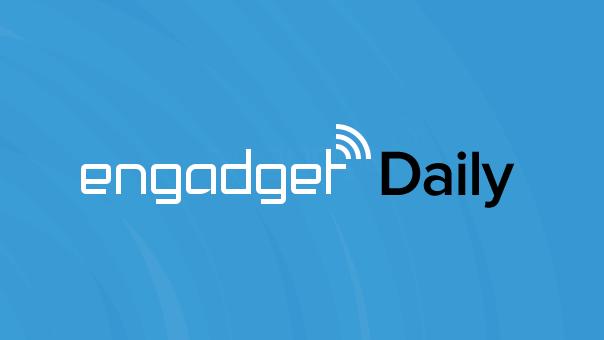
Engadget Daily: Target's network breach, a tour of JetBlue's 'Mint' cabin and more!
Flying first class is a wonderful experience, but for most it's simply too expensive. JetBlue's new premium "Mint" cabin, however, is fresh, accessible and affordable. That's not all we have on deck, though -- read on for the rest of our news highlights from the last 24 hours.

AT&T throttles unlimited data plans at 5GB, no congestion required
It's no secret that AT&T throttles its users unlimited data connections. The company has been rather open about the policy. However, the carrier insisted that the practice is used to reign in the biggest bandwidth consumers, only necessary to keep network congestion at a minimum. Well, that doesn't seem to be the case. Big Blue's info page for "customers with legacy unlimited data plans" explains that when folks hit the 5GB threshold, they're gonna experience reduced speeds until the billing cycle is up. The reduction to compensate for congestion bit only applies to phones with unlimited data between the 3GB and 5GB mark. Of course, the FCC claims AT&T hasn't been clear about such practices, including just how slow the connection can get, despite the carrier claiming throttled customers get a text message when speeds are cut. In fact, an Ars Technica report found those figures to dip to half a megabit per second. At any rate, if you're a big data user, you can expect slower speeds above 5GB, even when the network's traffic is manageable. [Photo credit: Andrew Harrer/Bloomberg via Getty Images]

FCC orders T-Mobile to stop misleading throttled customers about speeds
Up to now, T-Mobile has been generously unblocking Ookla and other mobile test sites so you could see exactly how much speed you weren't getting when it throttled you. But the FCC has called a halt to that piece of duplicity, forcing the carrier to show true speeds to consumers. John Legere's outfit will now send you an SMS linking to speed tests that correctly calculate data rates when you hit your cap. It'll also be forced to provide a smartphone app or button linking to accurate tests, and clarify that others may provide full network rather than throttled speeds.








